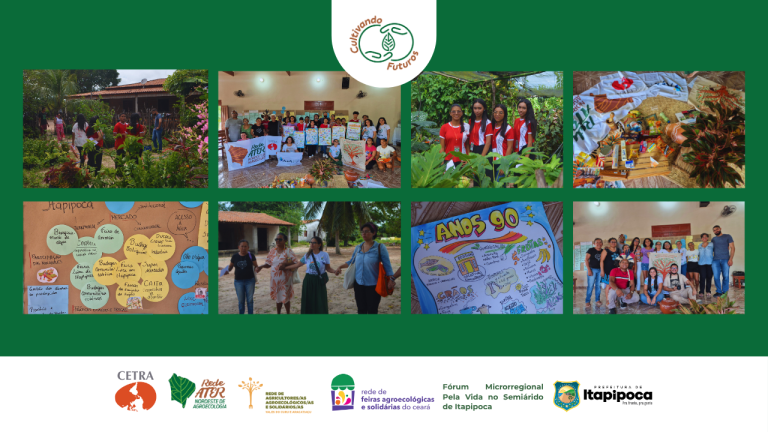Agroecology built in a family
Agroecology built in a family – Fafá’s Experience
To tell the story of Maria de Fátima dos Santos, or simply Fafá, is not not an easy thing to do. The trajectory of a leader, mother, agroecological multiplier, militant, to render all that into some few lines. Well, let’s go to the story of Fafá…
She was born and raised in the Jenipapo community located in the municipality of Itapipoca, in Ceará, northeastern Brazil, the same land of her eight children, Rita, Raimunda, Jânio, Jânia, Jesivânio, Josivânio, Josenir and Janiele. The same land in which her parents and grandparents once were able to run through with their bare feet, to plant, to harvest, to build their houses and make their cassava flour feasts. The faces of people who live in the Jenipapo community reveal a curious look at what is new, at what is pure. So is Fafá, her look reveals the openness to exchange, to share her experiences of living with the Semiarid, Agroecology and Feminism. Just reach to her doorstep and you will find an open and generous heart, strong and courageous.
When she was ten years old she already knew what it was to work in agriculture, her parents would take her to the weeding, planting and harvesting “I worked with my father, we burned and then planted, back then we thought it only worked liked that. But slowly, I started to notice that it couldn’t work like that, just to burn. If I get burned, I don’t like it, so wiht the earth it must be the same thing.”, Fafá recalls.
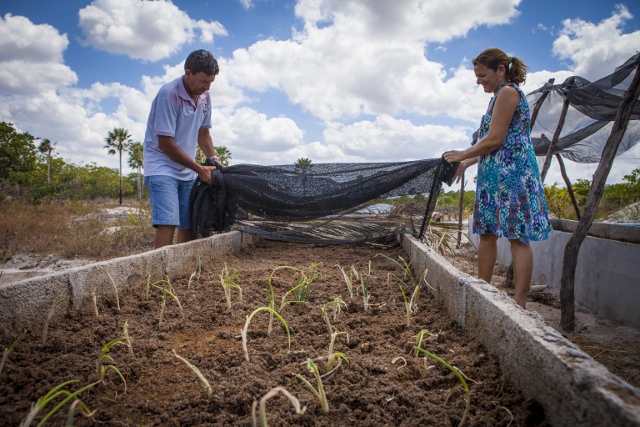
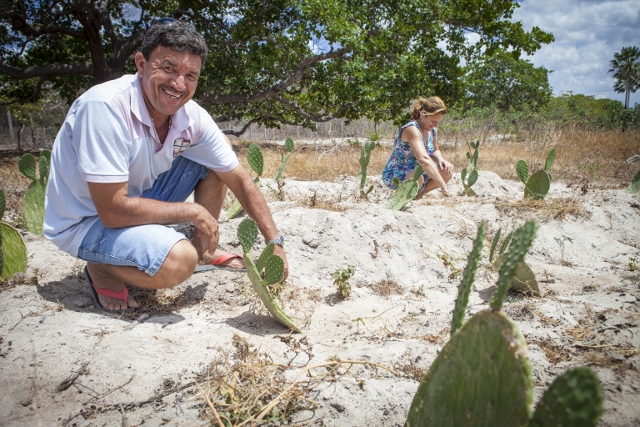
But it was in 2004 that her life story began to take on new directions, as her daughter Jânia began to participate in the training program for ‘Multipliers in Agroecology’, that was part of CETRA’s project ‘Sustainable Paths for Family Farming’. “My daughter was chosen to participate in the course and another young man from the community, I really wanted to participate in the course too, every time Jânia came home she told how the course had been, until the youngster dropped out, and that was the opportunity I had . I was so happy to start the course,” says Maria de Fátima.
The course was the start for Maria de Fátima to practice agroecology and coexistence with the Semiarid, along with her children who then were influenced to work with agroecological family farming and to consume healthy products. “Before my children didn’t believe it, especially the boys, they started slowly to see that we had a better life, that we had fruits all year round, that our products were healthy, and when I saw that it was working, the boys started to help me and do the same. Today everyone here are agroecological farmers. ”
Fafá and her family produce in an agroecological yard, and its diversity makes the farmer’s eyes fill with joy: “In this yard there is a little bit of everything, with coriander, chives, pepper, tomato, guava, lemon, jerimum, noni and much more. It is enough for me, my family and then to sell at the fair. ”
Maria de Fátima participates in the Agroecological and Solidarity Farmers Network of the Curu and Aracatiaçu Valleys Territory, she sells her products at the Itapipoca and Fortaleza Agroecological Fair, she is a member of the Rural Women Workers Movement (MMTR) and follows the Solidarity and Sustainable Revolving Fund. All these activities make this engaged woman a multiplier of the agroecological culture in the territory of Itapipoca: “participating in these actions strengthens me as a woman, strengthens my family”, says Fafá. The farmer is also one of the first in her territory to be part of the ‘Caderneta Agroecológica’ project, that monitors the family agricultural production in order to give visibility and value them, especially of women farmers.
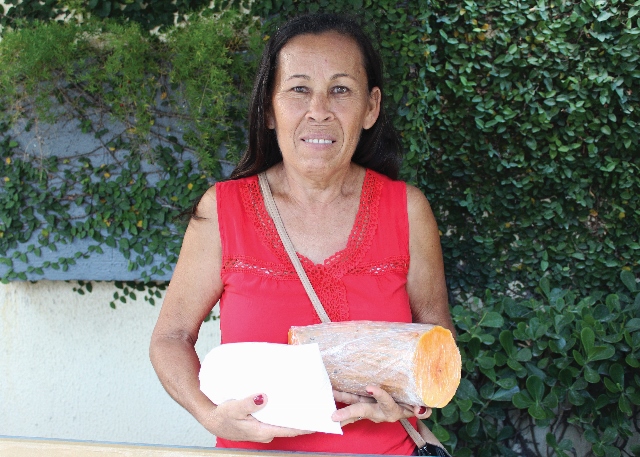
Agroecological Fair in Fortaleza
“The vocation to motherhood comes from the cradle. That is not difficult. What was not easy after the separation from a violent husband, who always was drinking, was to organize my new life, my spending and learn how to respect nature. Today, in my yard, there’s corn, beans, cashews, mangoes, sugar apples, pineapples, a whole orchard, all without the slightest drop of pesticide. I am happy, fulfilled, free and independent, thanks to this booklet with the course in agroecology. It is as important as the one we learned to read and write in. I recommend it”, says Fafá about the use of the booklet and her experience as an agroecological farmer and feminist.
The Santos family has earned the right to healthy eating, knowledge, autonomy … the right to a decent life. “Everything I wanted, I accomplished. My dream is to see my family engaged in this agroecological movement, I have already reached, but I hope that this seed planted in them, that they always keep cultivating it, that they pass it on to the grandchildren”, says Fafá.
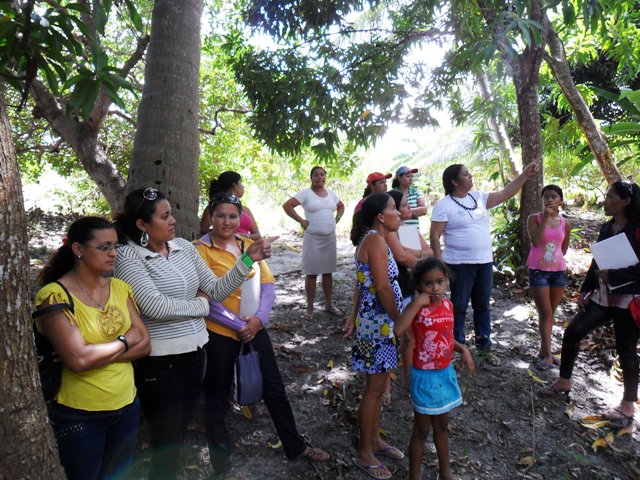
Visit in the area of Fafá, community Jenipapo, Itapipoca/CE – Brazil

